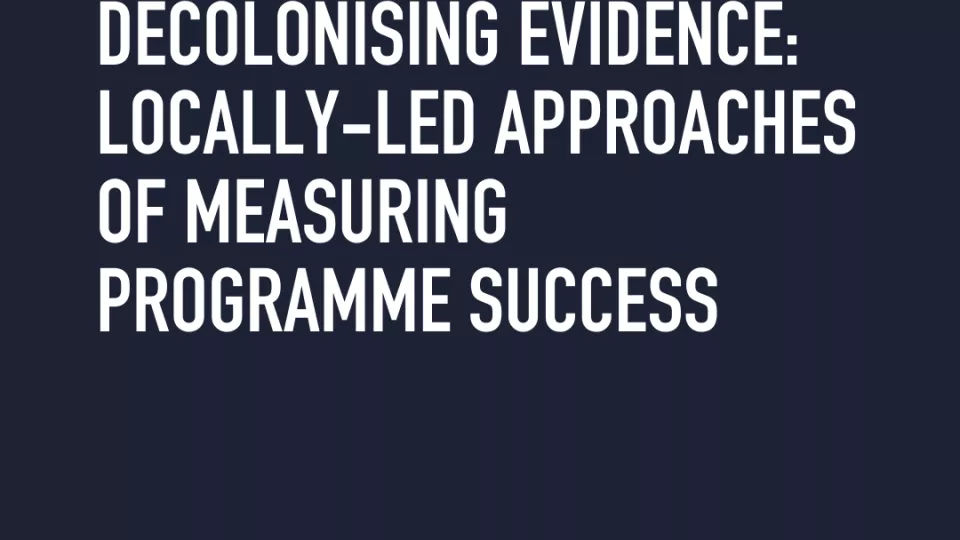
Search

LEARN about Start Fund Bangladesh
Start Network’s first virtual Assembly meeting took take place from Monday 12 to Thursday 15 October 2020, alongside our 10-year anniversary celebrations. Watch the recording of the session on Start Fund Bangladesh and access all the learning materials below.
START FUND: LEARNING FROM DISEASE OUTBREAKS
The Start Fund is a multi-donor pooled rapid response fund that initiates disbursement of humanitarian finance within 72 hours. It is collectively owned and managed by the Start Network members, a group of 42 national and international aid agencies from five continents. The fund was officially launched on 1st April 2014 and has an annual disbursement of approximately £11 million (GBP). It is designed to fill gaps in the humanitarian funding architecture in three main areas: underfunded small to medium scale crises; forecasts of impending crises; and spikes in chronic humanitarian crises.
Start Fund: Learning from Decision-Making
The Start Fund is a multi-donor pooled rapid response fund that initiates disbursement of humanitarian finance within 72 hours. It is collectively owned and managed by the Start Network members, a group of 42 national and international aid agencies from five continents. The fund was officially launched on 1st April 2014 and has an annual disbursement of approximately £11 million (GBP). It is designed to fill gaps in the humanitarian funding architecture in three main areas: underfunded small to medium scale crises; forecasts of impending crises; and spikes in chronic humanitarian crises. This product is produced for the Start Fund, part of the Start Network. Evidence and learning for the Start Fund is provided by World Vision UK.
Start Fund Learning Framework: Crisis Anticipation Window
The Start Fund anticipation window seeks to mitigate harm and loss for communities at risk of crisis. It does so by enabling and incentivising StartNetwork members to monitor risk and act on the basis of forecasts. Throughthe Start Fund anticipation window, Non-Governmental Organisationscan respond to shifts in risk, suchas a forecast of extreme rainfall or likely political crisis. A key element of thisapproach requires collective sense-making, or collaborative risk analysis, aroundthe situation forecasted and its potential humanitarian impact.

Start Network Assembly 2021: Decolonising evidence: locally-led defined approaches of measuring programmes success
Takeaways from the 2021 Start Network Assembly Explore session: Decolonising evidence: Locally-led approaches of measuring programme success This panel session aimed to explore what alternative approaches to collecting data and measuring success could look like from the perspective of local communities and non-western lenses. It was facilitated by Sanjukta Moorthy (a planning and MEL consultant) who has a special interest in championing diverse perspectives and decolonised frameworks. The three panellists were Saeed Ullah Khan (GLOW consultants, Pakistan) who brings extensive multi sectoral experience especially in large scale survey handling; Anuarite Kabuo (MIDEFEHOPS asbl, DRC) who works for an NGO passionate about contributing effectively to the development of vulnerable communities, children, women, victims of situations of armed conflict; and Pradytia Pertiwi (Rooted Impact, Indonesia) whose work focuses on research and development practice at the intersection of psychology, disasters, development and inclusion, seeking to co-create knowledge with communities.
Women's Leadership in Disaster Preparedness
This research is an output of the Learning Project of the Disasters and Emergencies Preparedness Programme (DEPP). The DEPP was a 4-year programme funded by the Department of International Development and co-led by the Start and CDAC Networks. It was comprised of 14 projects implemented in 10 countries, each led by a consortium of international and local humanitarian agencies, and aimed to improve the quality and speed of response in countries at risk of natural disasters or conflict related emergencies. The programme included initiatives to address gender in emergencies and capacity building for women as humanitarians. This report aims to build on existing literature by examining women’s leadership and influence within humanitarian preparedness in DEPP and other similar programmes. More information can be found on the DEPP learning platform.

